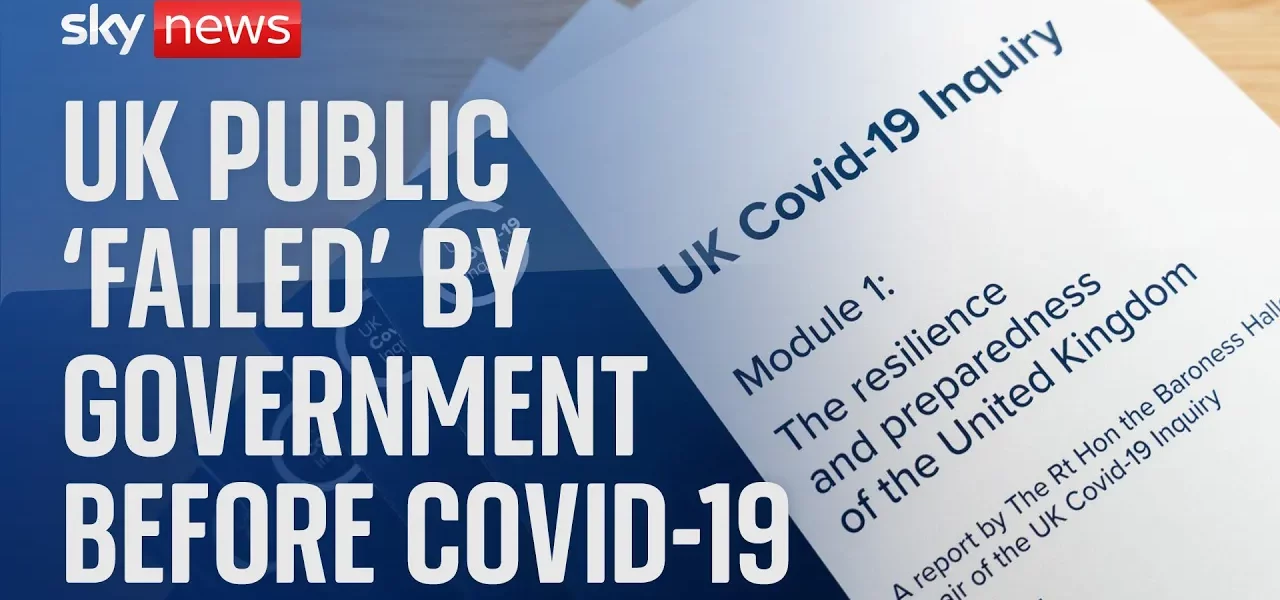UK COVID-19 Response: An In-Depth Analysis of Failures and Recommendations for Reform

This article provides a comprehensive overview of the UK government’s pandemic preparedness, the shortcomings revealed during the COVID-19 crisis, and the crucial recommendations for reform aimed at preventing future failures in public health responses.
Introduction
The COVID-19 pandemic exposed significant flaws in the UK government’s emergency preparedness and response systems. Despite previous planning efforts, the strategies in place were inadequate to handle the scale and complexity of the crisis. This article delves into the structural issues that hindered effective action during the pandemic, the lessons learned, and the essential recommendations for reforming the UK’s approach to civil emergencies.
The Inadequacies of Pandemic Preparedness
When the COVID-19 pandemic struck, the UK found itself ill-equipped to manage the crisis effectively. The existing emergency preparedness plans, particularly the sole pandemic strategy from 2011, proved outdated and inflexible. The failure to adapt these strategies to contemporary threats led to devastating consequences.
Complexity of Emergency Structures
The institutions responsible for emergency planning exhibited labyrinthine complexity, making swift decision-making and coordinated action challenging. This complexity created fatal strategic flaws in assessing risks and implementing necessary containment measures.
Failure of Containment Strategies
One of the first lines of defense against a pandemic is the ability to test, trace, and isolate cases effectively. Unfortunately, such a system was not in place in the UK when the pandemic began. This lack of preparedness severely compromised the ability to manage the outbreak.
Identifying Strategic Flaws
The strategic flaws that underpinned the UK’s pandemic response were manifold. Notably, the government did not apply or adapt its pre-existing pandemic strategy effectively, leading to a complete abandonment of crucial doctrines meant to guide response efforts.
Critical Errors in Planning
Several serious errors were identified within the civil contingency structures across the UK. These included:
- Inadequate assessment of risks faced by the nation.
- Failure to scale up testing and contact tracing systems promptly.
- Ignoring lessons from past pandemics and emergency exercises.
Consequences of Poor Preparedness
The ramifications of these strategic failures were grave, resulting in loss of life, economic instability, and a prolonged crisis that affected millions. Without significant changes, such outcomes could recur in future emergencies.
Recommendations for Reform
In light of the findings, a series of ten far-reaching recommendations have been proposed to overhaul the UK’s approach to civil emergency preparedness and response. These recommendations aim to create a more resilient and responsive system.
1. Simplification of Preparedness Systems
A radical simplification of the existing civil emergency preparedness and resilience systems is essential. This involves:
- Rationalizing and streamlining the current bureaucracy.
- Establishing clearer ministerial and official structures.
- Providing effective leadership during emergencies.
2. Enhanced Risk Assessment
A new approach to risk assessment must be implemented to encompass a broader range of actual risks, ensuring comprehensive evaluations are conducted regularly.
3. UK-Wide Strategy Development
Developing a cohesive UK-wide strategy that learns from past experiences and incorporates regular civil emergency exercises will be crucial in improving future responses.
4. Data Collection and Sharing
Better data collection and sharing protocols in advance of future pandemics must be established to facilitate a coordinated response.
5. Regular Pandemic Response Exercises
It is recommended that a UK-wide pandemic response exercise be held at least every three years, with outcomes published to ensure accountability.
6. External Expertise Integration
Bringing in external experts to challenge existing paradigms and prevent groupthink is vital for fostering innovative solutions to complex problems.
7. Independent Statutory Body Creation
Establishing a single independent statutory body responsible for whole-system preparedness and response will enable better strategic oversight and coordination.
Conclusion
In conclusion, the COVID-19 pandemic has highlighted critical flaws in the UK’s emergency preparedness and response systems. The ten recommendations proposed are not just suggestions; they are essential steps that must be implemented to ensure the safety and well-being of the population in future emergencies. The urgency for action is clear, and it is crucial that both the government and relevant organizations commit to meaningful reform. The lessons learned must not be forgotten, as failure to act could render the sacrifices made during this pandemic in vain. We encourage readers to stay informed and advocate for accountability in the reform processes.
“`




